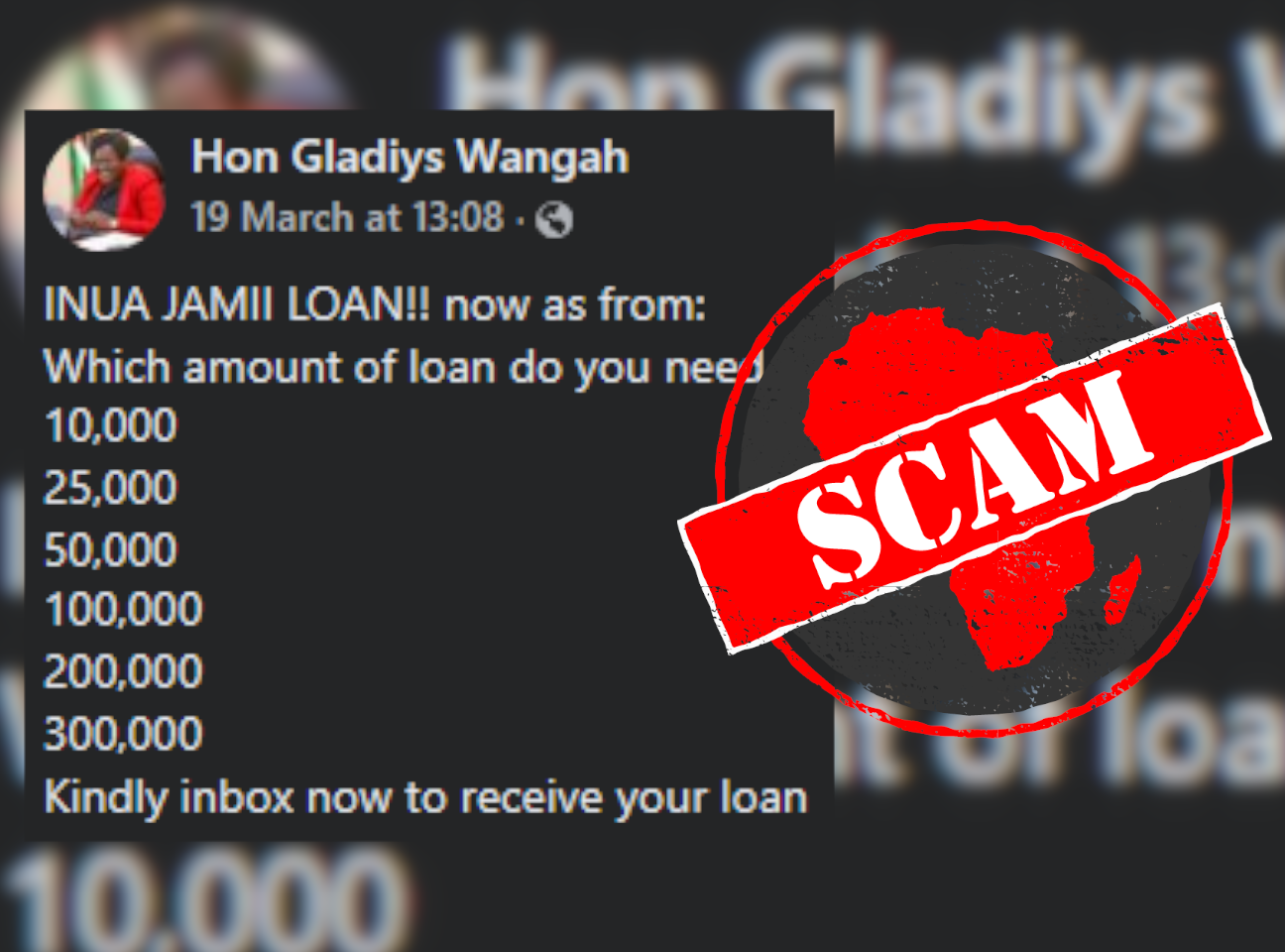IN SHORT: These Facebook accounts using the name of Kenyan governor Gladys Wanga are offering loans on Facebook. But do not fall for their promises, as the accounts are all run by imposters.
The Facebook accounts Hon Gladys wanga loans, Hon Gladiys Wangah, Hon Gladys wangah loan application, Hon Gladys wangah and Hon Gladies wanga loan would have you believe that they are run by Kenyan politician Gladys Wanga, the governor of Homa Bay county.
Each of the accounts use her names and photos to offer loans on Facebook.
The accounts claim that users can access different types of loans, including for business, school fees, personal use and for emergencies.
To get the loans, the accounts ask users to apply for them on WhatsApp through the numbers provided in the posts.
The loan offers have been posted here, here, here, here, here, here, here, here, here, here, here, here, here, here, here, here and here.
All the five accounts have been flagged by Facebook as potentially false. But are they? We checked.

Signs of scam
It is unlikely that a sitting Kenyan governor would set up multiple Facebook accounts for the purpose of lending thousands of shillings to strangers, given the reputation risks involved.
None of the accounts are linked to a website or address. They therefore ask users to apply for the loans by phone or WhatsApp. Genuine loan offers and business adverts are usually posted on Facebook pages or accounts that have websites or apps where customers can transact and make enquiries.
Wanga's official page is Governor Gladys Wanga. It is verified by Meta and has 415,000 followers. There are no loan offers on her Facebook page.
The accounts offering the loans are fake and their offers are scams.
Republish our content for free
For publishers: what to do if your post is rated false
A fact-checker has rated your Facebook or Instagram post as “false”, “altered”, “partly false” or “missing context”. This could have serious consequences. What do you do?
Click on our guide for the steps you should follow.
Publishers guideAfrica Check teams up with Facebook
Africa Check is a partner in Meta's third-party fact-checking programme to help stop the spread of false information on social media.
The content we rate as “false” will be downgraded on Facebook and Instagram. This means fewer people will see it.
You can also help identify false information on Facebook. This guide explains how.




Add new comment